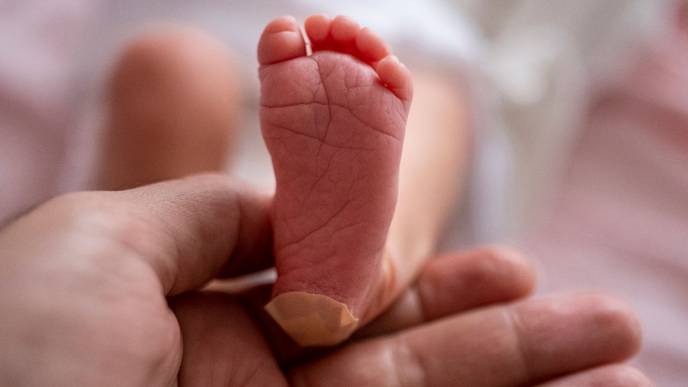ReachMD
Be part of the knowledge.™Should We Screen All Newborns for Neurodevelopmental Disorders?

Expanding newborn screening to include identifying genes associated with an increased risk for neurodevelopmental disorders (NDDs) would cause more harm than good, according to an article recently published in Pediatrics. While some experts believe early identification of NDDs in the newborn period would provide an equitable way to flag and treat disabilities early, the authors of the new paper contend that broader genomic sequencing would worsen existing health disparities.
“The benefit of early genomic screening hinges upon the ability to identify children with NDDs early and then provide timely access to therapeutic supports,” said lead author Sarah Sobotka, MD, an assistant professor of pediatrics at UChicago Medicine who specializes in developmental and behavioral pediatrics. “The reality is that we’re practicing in a context where there are few supports and disparate access to care for children already identified as having an NDD.”
Given the dire shortage of genetics experts and diagnosticians in the U.S., Sobotka and co-author Lainie Ross, MD, PhD — chair of the Department of Health Humanities and Bioethics and director of the Paul M. Schyve, MD Center for Bioethics at the University of Rochester — recommend strategic use of NDD screening on populations of children who actually show signs of developmental delays.
Ambiguity and the problem of access
Researchers have yet to prove that genotype (genetic makeup) and phenotype (signs or behavior that are manifested outwardly) are directly correlated when it comes to NDDs. Potential disconnects can raise alarms and, in some cases, lead to preventatively over-treating genetic signatures that may never manifest as clinical disorders in a child.
Families may receive a diagnosis and label children based on the premise that a genetic variant means a child has an NDD or will develop one in the future. This can lead to stigma and self-fulfilling prophecy, causing harm to those who might otherwise never display signs or symptoms.
Further exacerbation stems from the fact that there is an inadequate supply of trained therapists to provide the services needed for children with NDDs. Increasing early identification of those at risk who may never present with developmental delays would inevitably favor those with resources — children whose parents are more poised to advocate — widening the gap for minoritized groups who already struggle to access care.
Data that lack diversity
The authors argue that the current body of genetic population data is skewed because the majority of participants in genetic research have been members of the white middle class. This could naturally lead to more diagnoses for children in those groups, which can in turn grant quicker access to early interventions. If help is skewed toward groups overrepresented in current data, it could leave others behind despite urgent need, especially those in understudied minoritized groups.
Not only are there not enough genetic diagnosticians to meet demand for broad testing, experts also don’t have adequate genetic information about variants in diverse communities, Ross explained.
“If we wait to test the children until they manifest signs of delays, we can actually start looking for other genetic variants within those populations — that way, when early genomic testing is proposed again in 10 or 20 years, we will have a better understanding of the extent to which these genotypes will correlate with NDD phenotypes,” said Ross, who is both a bioethicist and a pediatrician. “We’ll also have collected a much more diverse set of genotypes, so we will actually be looking for these differences in all populations.”
A new approach to early screening
While Sobotka and Ross oppose broad genomic sequencing of newborns, they are not entirely against early screening for NDDs. They argue the best way to accomplish screening is not through universal newborn screening programs, but by focusing resources on early identification by general pediatricians during routine well-child visits. As part of these appointments, pediatricians would use standardized screening assessment tools as well as referrals from head-start programs or other early childhood education programs.
"We need to identify neurodevelopmental delays in children early, and we need to provide enrichment opportunities, when possible, to prevent delays from developing,” said Sobotka. She pointed out that such opportunities include both educational interventions and supportive family leave policies that encourage early parent-child attachment and interactive activities. “There are population-based interventions proven to improve neurodevelopmental outcomes that we are still not doing. These should be our first public-health initiatives; not expanding newborn screening,” she said.
Facebook Comments